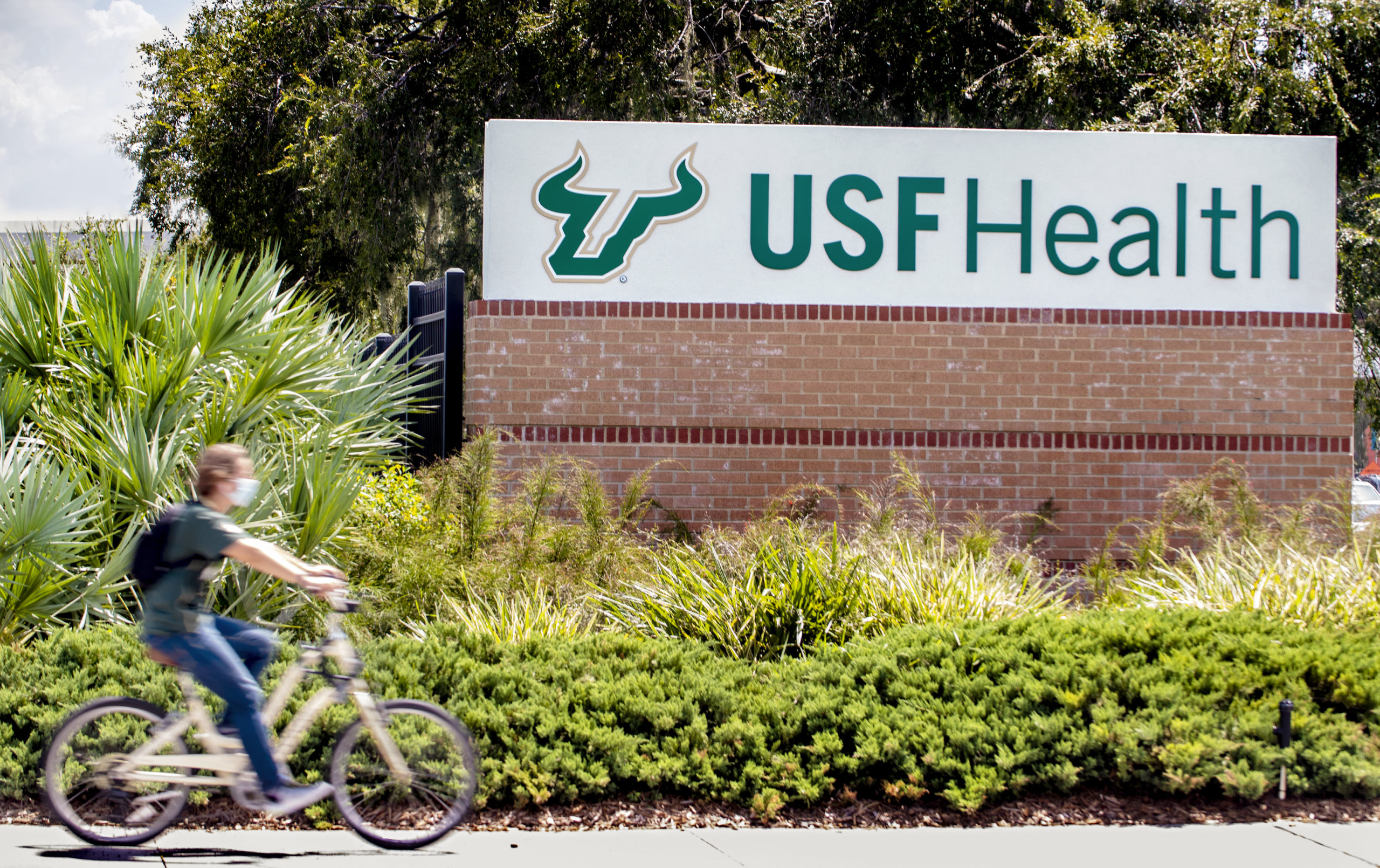USF Health’s COVID-19 data reflects a continued decline in new cases, transmission and hospitalizations.
Courtesy of USF
By Annalise Anderson
More than a month into the fall semester, administrators at USF Health are feeling good about the university’s management of an uncertain return to campus amid an ongoing threat from COVID-19.
“As chaotic as it felt those first couple of weeks, we actually did pretty well,” said Donna Petersen, dean of USF College of Public Health, during a Sept. 29 Faculty Senate meeting.
Petersen said the return to in-person instruction brought more positive cases, virus exposure and remote instruction than anticipated by USF Health, making it a “rough” start to the semester.
According to recent data shared during the meeting, test positivity, virus reproduction and hospitalization rates continue to trend downward.
“This is really good news,” said Interim President Rhea Law.
According to Petersen, vaccine clinics across all three campuses have seen “steady demand” and the university will continue to offer first and second doses of the Pfizer, Moderna and Johnson & Johnson vaccines.
“We’re just trying to get doses in arms,” Petersen said.
USF announced on Sept. 27 that it offers third doses of the Pfizer vaccine to eligible students, faculty and staff who are over 65 years old, considered high-risk or in the teaching profession, as long as it’s been six months since their last dose.
Third doses of the Pfizer vaccine are also available to the family of those who are eligible.
Petersen emphasized that a third vaccine is “not technically a booster” and, although studies do not thoroughly support additional immunity from a third dose, “it certainly does no harm.”
Despite the downward trend and USF’s growing vaccination rate, both Law and Petersen were hesitant to show signs of relief during the meeting.
“I know we’ve seen [COVID-19 rates] go down before, and then the Delta variant came along, but let’s all keep our fingers crossed that is in fact the case,” Law said.
Petersen said, for her team at USF Health, “things change almost every day.”
“We get the occasional respite and then it kicks back up again,” Petersen said.
Since August, faculty members have struggled with students’ mask compliance and reporting information to USF Health when a student tests positive, like whether the student was in class, where they sat and who was sitting next to them.
In an attempt to offer faculty support, some classrooms at St. Petersburg are equipped with a laminated flyer reminding professors that they cannot require students to wear masks, should not tolerate disruptions and they should attempt to deescalate situations.
Most recently, USF implemented “Respectful Responders” to help professors deescalate classroom disruptions caused by students’ noncompliance with the recommended mitigation protocols.
Professors are instructed to call the college’s designated Respectful Responder phone number on the flyer to request assistance from a volunteer who “can engage the students in constructive conversation, determine their concerns and attempt to come to a mutual resolution.”
In an Aug. 24 Board of Trustees meeting, Faculty Senate Chair Tim Boaz criticized the administration, stating USF’s COVID-19 safety plan had been “tossed out the window.”
While USF continues to “strongly encourage” students to get vaccinated and wear masks, Petersen said USF Health believes the virus is here to stay.
“We believe we will eventually reach a post pandemic place, but we likely won’t reach a COVID-free place. We believe COVID-19 will be with us in the form of a cold or [flu-like illness],” Petersen said.



